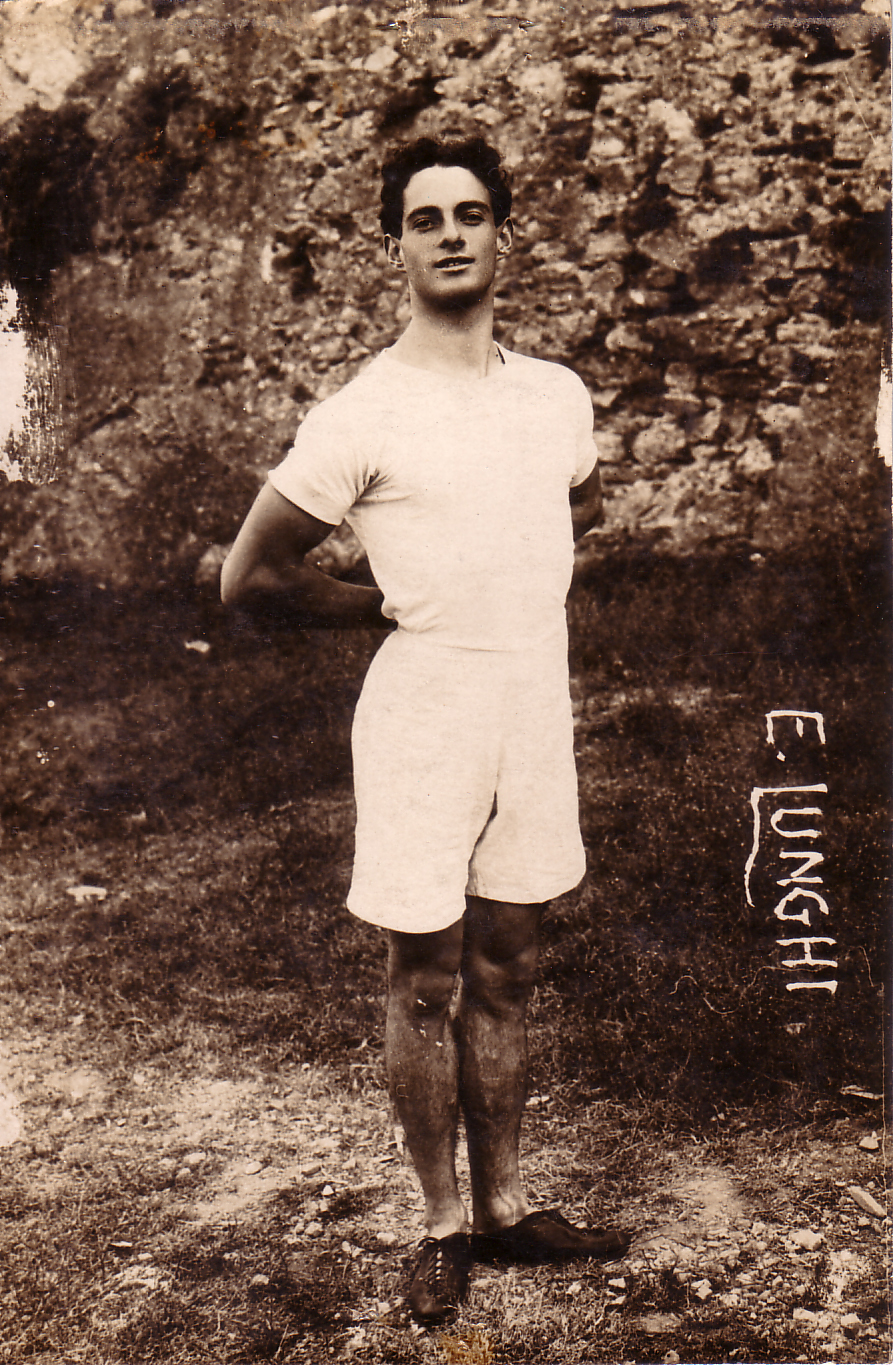1. Overview
Emilio Lunghi (Emilio LunghiItalian, born March 16, 1887, though some sources state 1886 - died September 27, 1925) was a pioneering Italian track and field athlete. He is historically significant as the first Italian to win an Olympic medal in athletics, securing a silver medal in the 800 metres race at the 1908 Summer Olympics in London. Lunghi's career spanned multiple national championships and saw him establish world records in various distances, cementing his legacy as a foundational figure in Italian sports history.
2. Early Life
Emilio Lunghi was born on March 16, 1887, in Genoa, Italy. Some historical accounts suggest his birth year might have been 1886. Details about his early life and upbringing beyond his birth information are not widely documented.
3. Athletic Career
Emilio Lunghi's athletic career marked a significant period for Italian track and field, highlighted by his groundbreaking Olympic performance and a series of national and international achievements.

3.1. 1908 London Olympics
Lunghi achieved his most notable international success at the 1908 Summer Olympics in London. He competed in both the 800 metres and 1500 metres events.
In the men's 800 metres, Lunghi won his semifinal heat with a time of 1:57.2, successfully advancing to the final. In the final race, he completed the distance in 1:54.2. This time surpassed the previous Olympic record by 1.8 seconds, showcasing a remarkable performance. However, he finished 1.4 seconds behind Mel Sheppard of the United States, who claimed the gold medal and set a new world record at 1:52.8. Lunghi's achievement of the silver medal made him the very first Italian athlete to win an Olympic medal in track and field.
Prior to the 800 metres, Lunghi also participated in the 1500 metres event. In his first-round heat, he competed against Norman Hallows, among others. Both Lunghi and Hallows recorded times that broke the existing Olympic record for the event. Lunghi's time was 4:03.8, while Hallows finished slightly ahead at 4:03.4. Despite Lunghi's impressive performance and setting an Olympic record, only one competitor from each heat was permitted to advance to the final, leading to his elimination in the preliminary round.
3.2. Post-Olympic Career and World Records
Following his appearance at the 1908 London Olympics, Emilio Lunghi relocated to New York City for a year. During his time in the United States, he joined the Irish American Athletic Club, a prominent athletic organization. While competing as a member of this club, Lunghi established three new world records in various distances. These records were set in the 700 yd, 880 yd, and two-thirds of a mile (approximately 3.5 K ft (1.07 K m) or 0.67 mile) distances.
3.3. National Championships
Emilio Lunghi demonstrated his dominance in Italian athletics by winning a total of nine individual national championships across six different events throughout his career. His victories highlight his versatility and consistent performance in various disciplines.
| Event | Wins | Years |
|---|---|---|
| 400 metres | 1 | 1908 |
| 800 metres | 1 | 1914 |
| 1000 metres | 3 | 1908, 1911, 1912 |
| 1500 metres | 2 | 1906, 1913 |
| 1200 metres steeplechase | 1 | 1912 |
| 400 metres hurdles | 1 | 1913 |
4. Death
Emilio Lunghi died on September 27, 1925. Some sources indicate his death date as September 25, 1925. Specific details regarding the location or circumstances of his death are not provided in the available sources.
5. Legacy and Assessment
Emilio Lunghi holds a significant place in Italian sports history due to his groundbreaking achievements. As the first Italian athlete to win an Olympic medal in track and field, his silver medal in the 1908 London Olympics' 800 metres was a momentous event. This accomplishment not only brought international recognition to Italian athletics but also served as an inspiration for future generations of athletes. His success contributed notably to the development and popularization of sports within Italy, establishing a precedent for national athletic excellence on the global stage. His multiple national titles and world records further underscore his impact as a versatile and formidable competitor, solidifying his legacy as a true pioneer of Italian track and field.